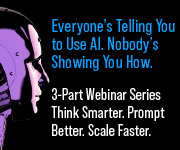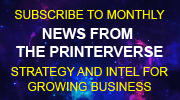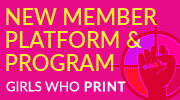 Two Web Giants Square Off Over a Future of Hyper-Personalized Experiences
Two Web Giants Square Off Over a Future of Hyper-Personalized Experiences
If you’re not familiar with the semantic web, the vision is that soon the web will deliver a personalized experience that not only is extraordinarily relevant to you but might also anticipate your desires before you even know them. How would it do this? By using the wealth of knowledge available via your social profile and other digital sources.
This evolution of the web isn’t possible, of course, unless some centralized group with some form of open platform can share your social profile — and even, potentially, your location — with any other digital property. It is the inevitable future of our digital world and those who control it will dominate the next phase of the internet.
Facebook’s Open Graph offers far more than the ability to “like pages.” It’s Facebook’s play to power the semantic web.
Deep personalization
Facebook’s Open Graph can allow for deep personalization of any Open Graph-enabled content — content that reacts to your age, your gender, your friends, your personal preferences and even the things you “like.” The only thing required to fully achieve hyper-relevance would be understanding your location — but a soon-to-be-released update to the Open Graph API will allow developers to integrate location-based services into any website or mobile application.
For example, imagine integrating Open Graph into Google’s search results and then think about what type of search results you might get back if you searched for “Caribbean vacation” and it knew that you were married, had two kids, lived in New York, were 34, had “liked” a Windsurfing Brand or a sport team, and were currently posting a search from your home address in the evening.
See full post at: Why Google’s Launching ‘Me’ and Facebook’s Real Future – Advertising Age – DigitalNext.
Related articles by Zemanta
- Facebook & The Semantic Web (readwriteweb.com)
- One Fine (Semantic) Day (expertsystem.net)
- Here’s how Google could take on Facebook. (thenextweb.com)
- Google Me a possible competitor to Facebook… (stustake.com)
- Google Me Vs. Facebook, A Social War Is About To Begin [Rumor] (blogherald.com)












